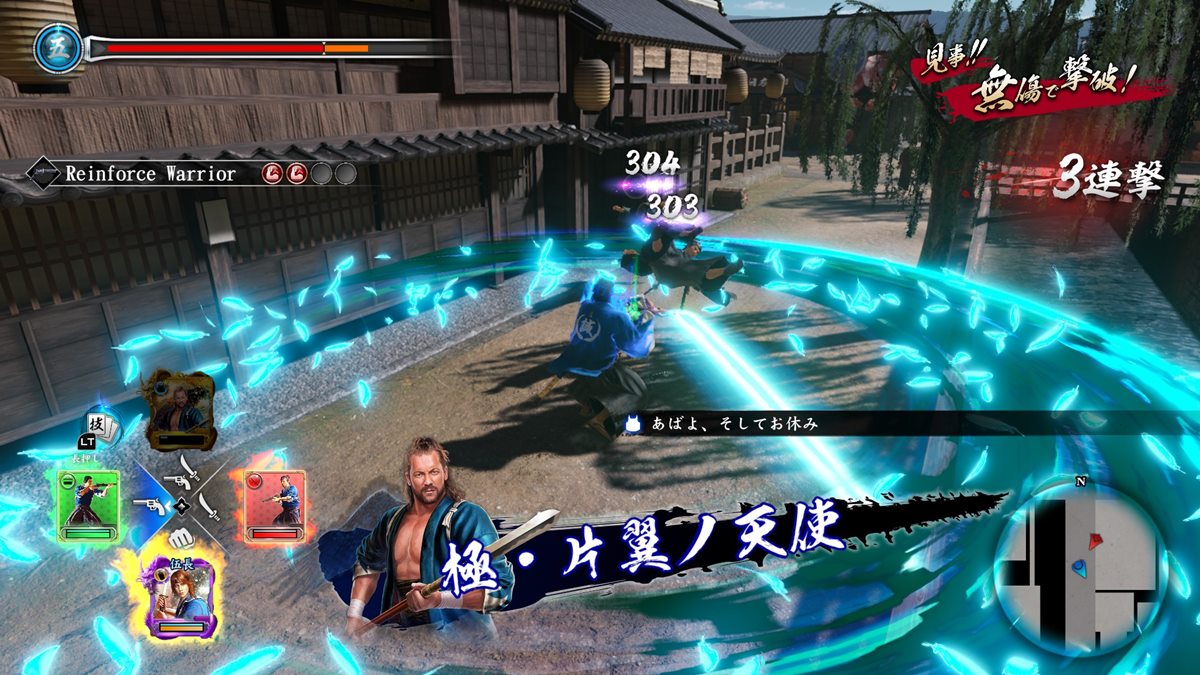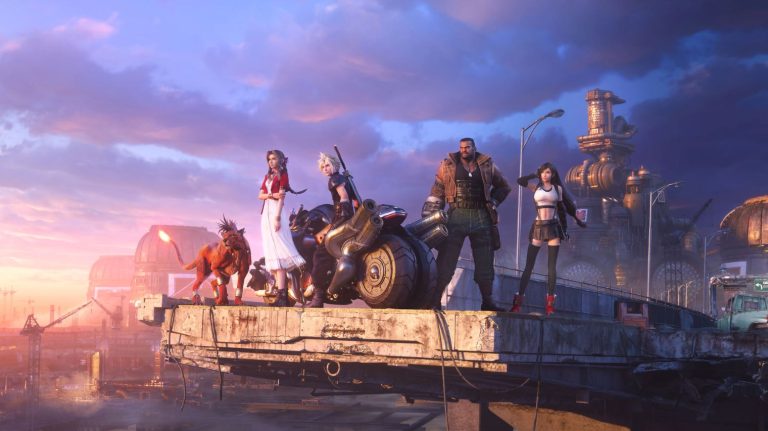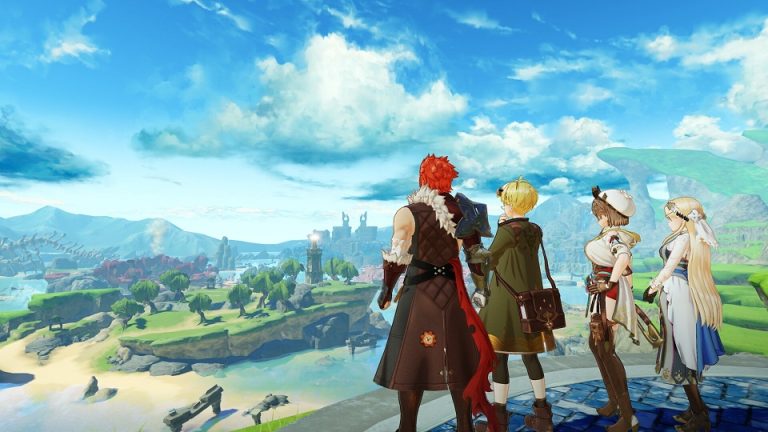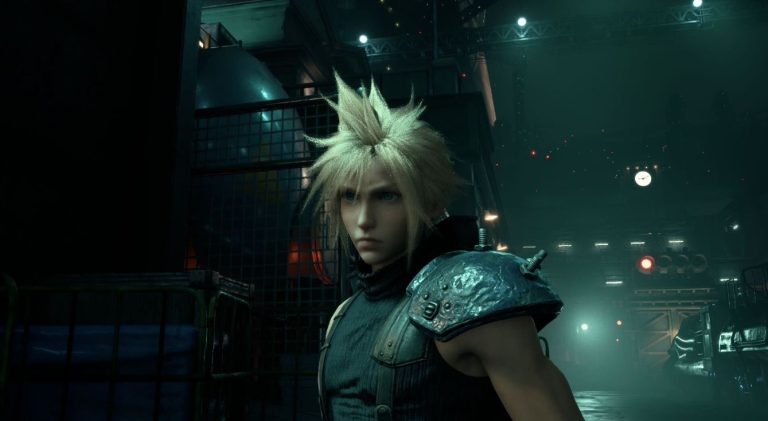In February, Sega released Like a Dragon: Ishin!, a remake of the 2014 title Ryu ga Gotoku Ishin! originally released for PS3 and PS4. While the original version was only released in Japan, the remake was made available worldwide. It also adds several new trooper cards, including one featuring All Elite Wrestling’s (AEW) Kenny Omega.
Trooper cards are items featuring allies who can join battles to fight alongside main character Ryoma Sakamoto. Each card has its own unique ability, which can be used during battles to provide Ryoma with a number of different benefits. While these abilities could only be used in battle dungeons in the original version of the game, they can now be utilized during main story battles as well.
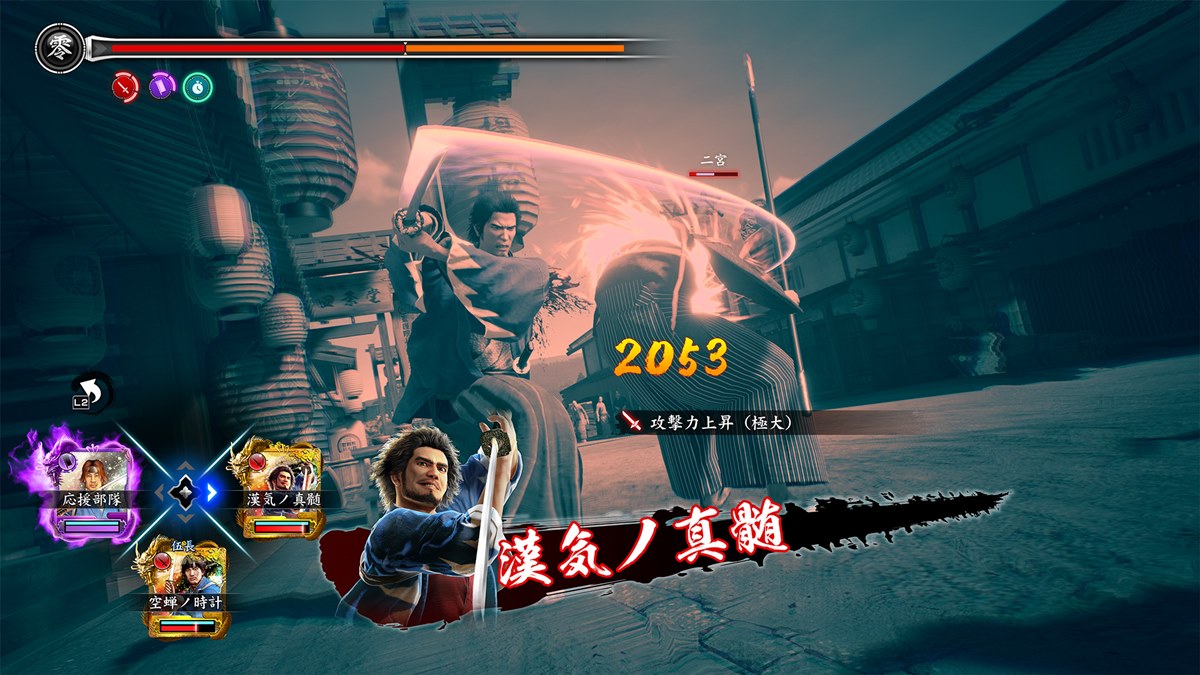
Despite the fact this is simply a trooper card, some may find it strange to see Kenny Omega appearing in a Yakuza/Like a Dragon game. However, Kenny Omega has been a huge fan of the series for a long time, going so far as to repeatedly appeal to Sega to be featured in a game. Well, it would seem his wish has finally been granted with the release of Like a Dragon: Ishin! As it turns out, Hiroyuki Sakamoto, chief producer of the game, is also a fan of professional wrestling and Kenny Omega. It’s like a match made in heaven.
We had heard these two were already acquainted with one another prior to this collaboration. Curious to find out the truth for ourselves, we arranged a remote meeting with Sega to discuss the topic and discovered that the two have great respect for one another.
*Note: This conversation has been edited for clarity and length.
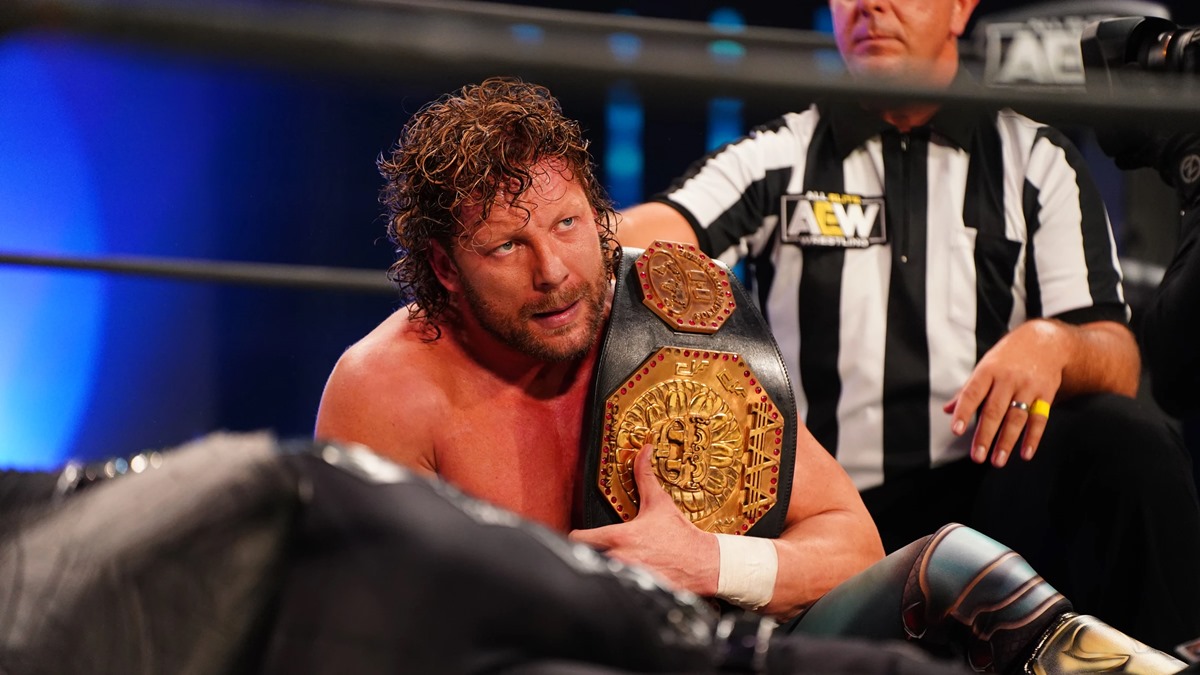
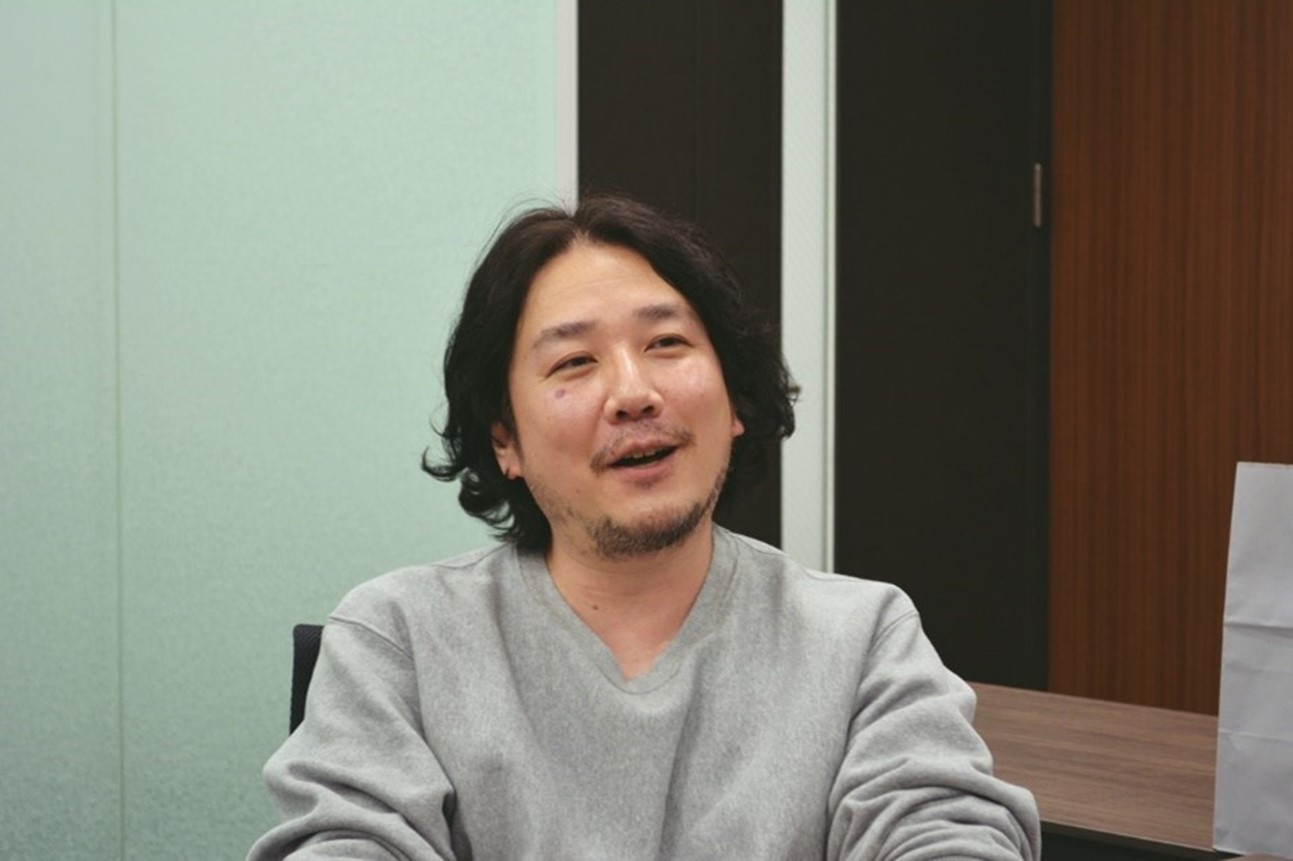
Sakamoto:
First of all, thank you for collaborating with us on Like a Dragon: Ishin! I really think it turned out great.
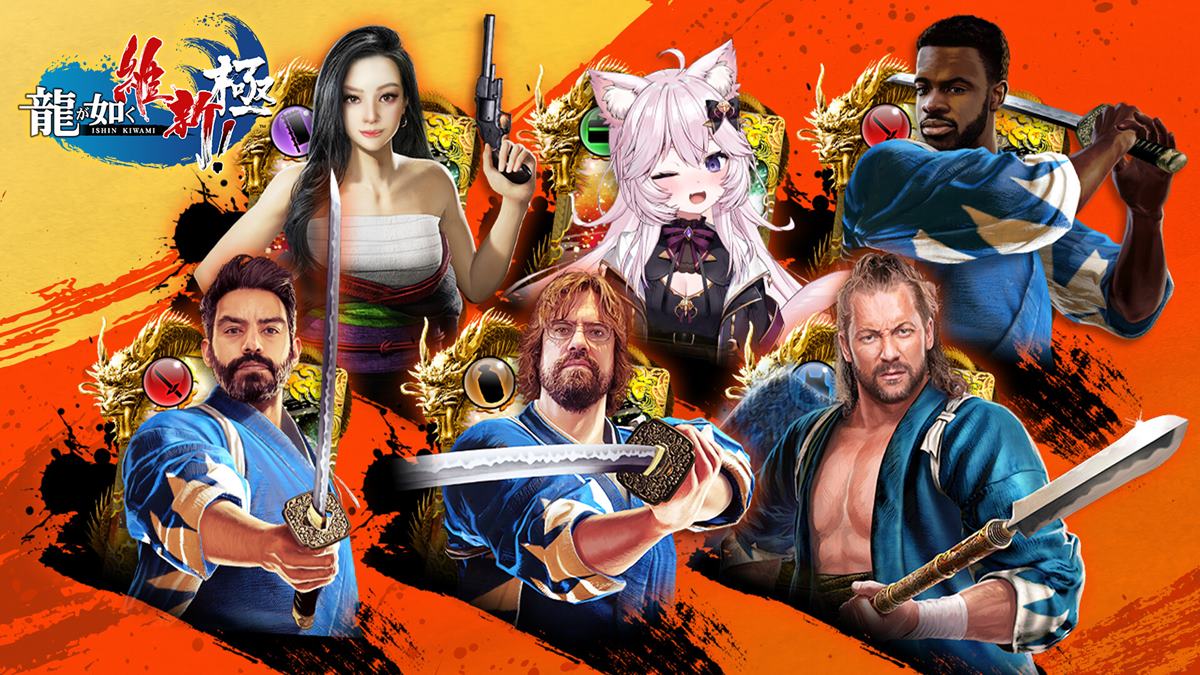
Kenny:
Thank you very much as well. I’m thrilled to be appearing in a Yakuza/Like a Dragon game, and I’m glad my fans are enjoying it. It’s great to hear that it’s not just my fans who are using my card, but general fans of the game as well.
Sakamoto:
To be honest, your Trooper Card is actually quite strong.
Kenny:
Yeah, I guess it is. (Laughs)
Sakamoto:
Using it almost guarantees an easy victory. (Chuckles)
Kenny:
It means a lot that you made me into such a powerful card. Just being part of the game is amazing, but being turned into a card that is so useful in so many different situations is a huge honor.
Sakamoto:
This collaboration was a result of a tweet made by Kenny back when Yakuza 6: The Song of Life was released.
Where am I?
At the time, Kenny was actually a candidate for appearing in the game. We were trying to collaborate with current New Japan Pro-Wrestling athletes for Yakuza 6, and Kenny was of course one of them. Narratively, however, we found it a bit difficult to work him into the scenarios set in various parts of Japan, so we reluctantly left him out at the time.
Kenny:
And here I thought Sega just didn’t like me…
Both:
(Laughs)
Sakamoto:
That’s not the case at all! Yakuza 6 has actually been in the back of my mind ever since then, and because Like a Dragon: Ishin! was getting a worldwide release, we wanted to come up with ways to promote it to a worldwide audience. That’s where the idea of doing collaborations via trooper cards came from. We didn’t want to just stick with collaborations with other games, either. We wanted to branch out into other genres, and wrestling was the first one that came to mind. Your name was actually the very first one I mentioned.
Kenny:
Thank you. As soon as I saw the art for the card, it just felt like it worked. It was so skillfully made.
The significance of bringing the old back into the world
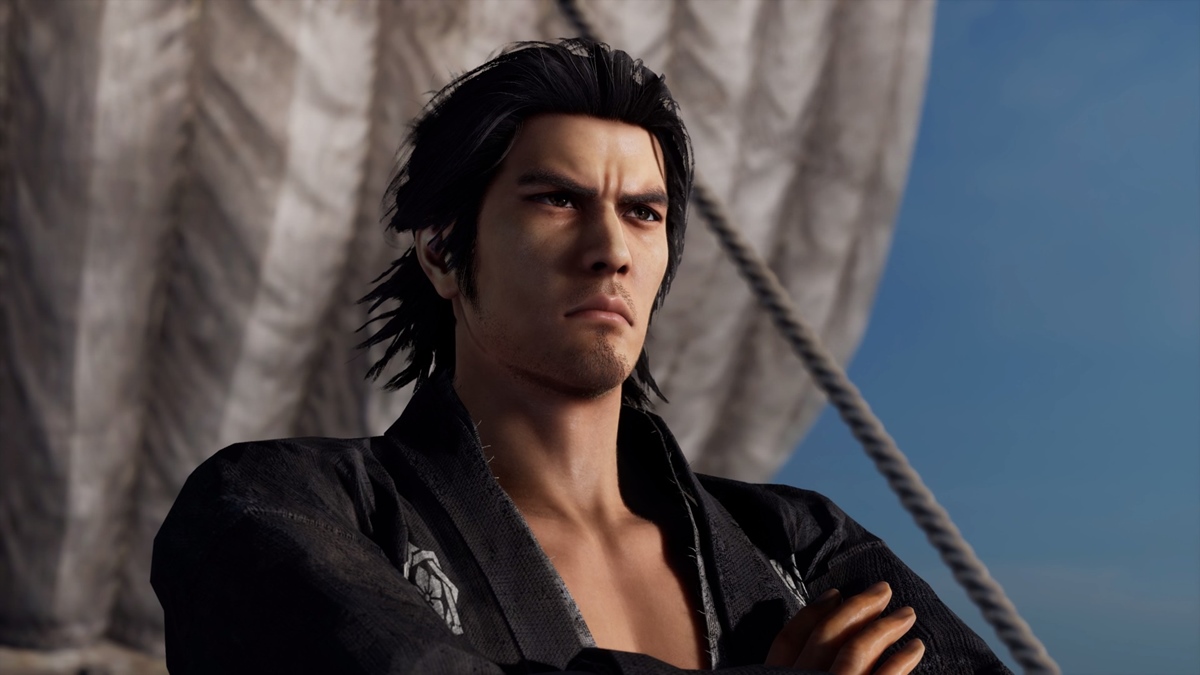
Kenny:
It feels good to be kind of like an ambassador from the west; to be the one to show people just how great the storytelling of this series is and sort of help spread Japanese culture and their style of storytelling.
Sometimes I feel like the more time passes, the more games have started to feel the same. With the Like a Dragon series, though, it’s never lost its identity. I think that’s something you should feel very proud of. At its core, I personally feel like this series is the perfect example of Japanese art. For that reason, I’m thrilled to be a part of it and help show the beauty of Japan, the beauty of Japanese culture, and the beauty of the Japanese as both a people and as storytellers.
Sakamoto:
Thank you very much. I’m truly overwhelmed that you feel that way. I also understand what Kenny is saying. The original version of Like a Dragon: Ishin! was only sold in Japan, but with this remake version being localized into so many languages and sold worldwide, the excitement overseas is even stronger than it is here in Japan. I used to think it wouldn’t do very well outside of Japan because it was a game about samurai, but it would seem we’ve reached a point where people are really able to enjoy stories from different cultures.
We made the original version nine years ago, but I think it still works today because the story and the content of the game are interesting. We didn’t focus on changing things to suit overseas audiences, either. Instead, we chose to leave the story as it was, and the players seem to have really responded to that. It makes me feel as though truly good things remain so, no matter how much time passes.
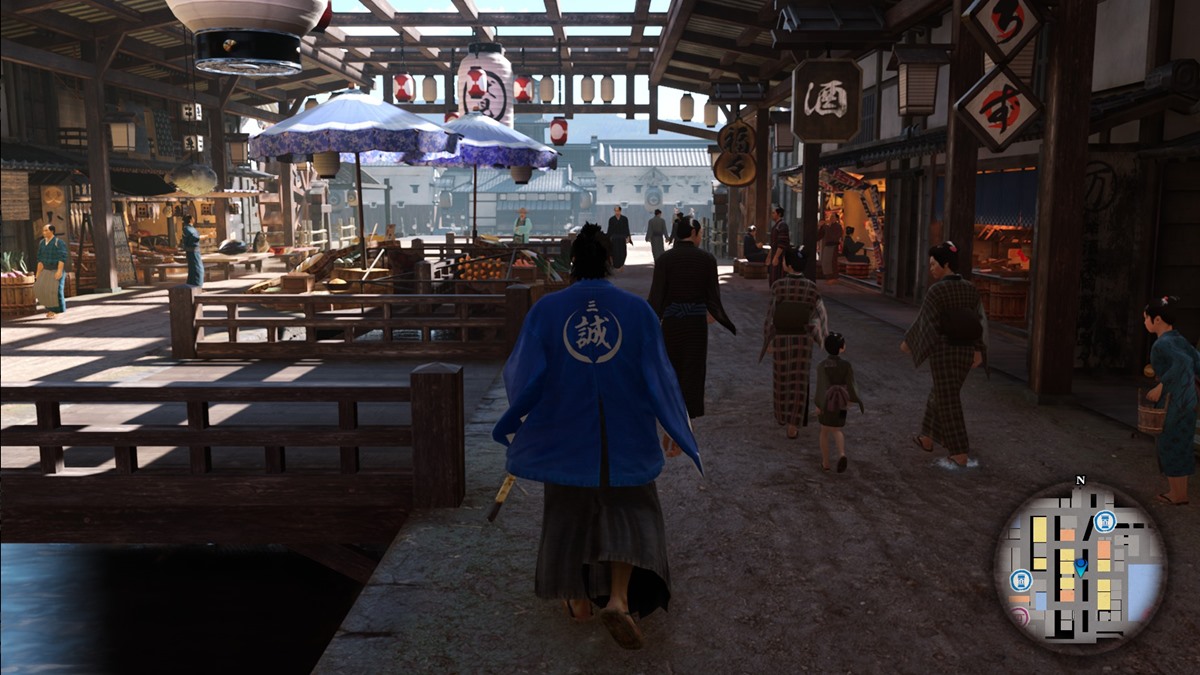
Kenny:
It’s strange because with science advancing, it’s easier than ever to stay connected with everyone and everything on a global scale. It’s also natural to think we’d be able to produce better and better material than before, but actually the best study material comes from our past. It’s almost like the best way to take advantage of our current technology is to use influences from the past.
Sakamoto:
I agree. We’re also researching the latest technology, but we don’t just take the short-sighted approach of relying solely on that for everything. Instead, we’ve adopted an approach of selecting and incorporating technologies based on what we think will help us expand the range of what is possible the most. I believe this approach will continue unchanged into the future.
Looking back with Kenny on the birth of Yakuza/Like a Dragon
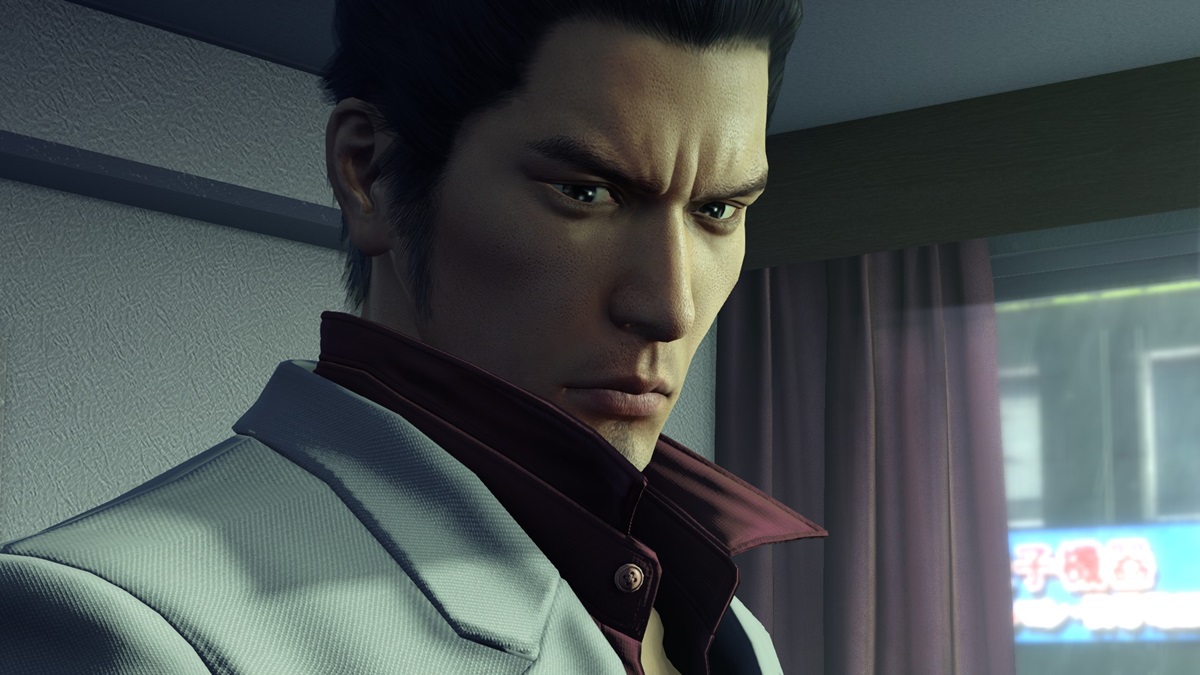
Kenny:
Even as time goes by and as the characters age, there’s still such a rich connection to Japanese culture that isn’t completely westernized. That goes for the games in the core series as well, not just for Ishin! That’s one of the things I love about the series.
Sakamoto:
Back when we were making the first Yakuza game, we actually struggled to decide what kind of game we should create. At the time, there was a very limited variety of titles that were doing well in Japan, so we knew we needed to create something unique in order to succeed in the market. We eventually decided to create a game that was meant for adults to enjoy, going with the catchphrase, “For those who love games, and also those who have grown tired of them.”
It didn’t matter if children couldn’t enjoy it. Our only goal was to make a game that adult men could really enjoy. We deliberately chose to go with settings such as Kabukicho, the red light district in Tokyo where the sex industry is prevalent. We were worried that if we made something similar to existing titles at the time that we wouldn’t be able to compete moving forward. That was the inspiration for the first Yakuza game.
Kenny:
I think that’s a big reason why a lot of companies end up losing their identities. They look at the overall picture, thinking too much about how to make the most money, and end up trying to make a game for everybody to get as many people to play it as possible. I think that ends up watering things down too much. In the process, you lose the message. You lose the spirit.
Sakamoto:
I completely agree with you. For example, when it comes to games for kids, we simply couldn’t compete with Nintendo. And if we wanted to compete in the realm of games with rich visuals, we would have been up against companies like Square Enix. Back when we were developing the first Yakuza title, there’s no way we could have matched their beautiful, high-quality visuals. Instead, we decided to focus on making something unique. When we released the first Yakuza game, it didn’t sell much in terms of units, though it did become a big topic of conversation.
Kenny:
Really? It didn’t sell well in Japan?
Sakamoto:
That’s right. After releasing the first Yakuza game, word of a “really strange game” started circulating, and it gradually turned into quite the buzz.
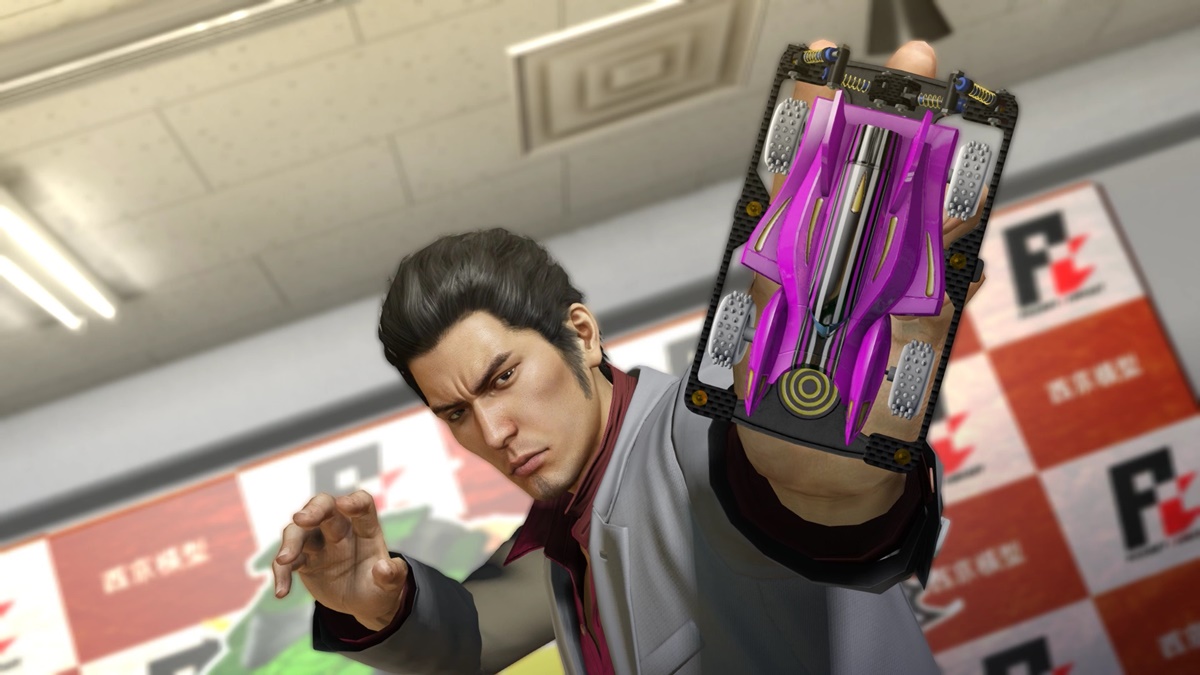
Nevertheless, we kept making them. Yakuza 2, Yakuza 3, and Yakuza 4 were released at a pace of about one game each year. In the later part of the series, we slowed down to roughly one game every two years, but we never stopped making them.
Kenny:
Did you ever feel pressured to meet certain sales numbers? Was there ever a time where you thought, “this needs to sell a certain amount or that’s it, the series is done,” or did you feel like you could just keep on going no matter what?
Sakamoto:
Every game was a battle, and there was always the possibility we wouldn’t be able to make another. Therefore, we approached each one as if it was the last, focusing all our energy on the current game instead of worrying about the next one.
Kenny:
Without knowing how the characters would age, or what troubles they would encounter in the future, was it difficult to go back and say, “okay, this is the next adventure,” or was there always sort of an idea in the back of your mind?
Sakamoto:
When we were developing the first Yakuza game, we definitely weren’t thinking at all about Yakuza 2. The same is true for the later games in the series as well, but with Yakuza, we dove really deep into the character designs, including each character’s background and personality. As a result, I had a sort of generalized idea of the kinds of stories they might create if they were ever to appear again. It’s more like the characters are the ones creating the stories, and that’s how we’ve approached the main story thus far.
Making good characters is important, and that goes for both Yakuza and pro-wrestling
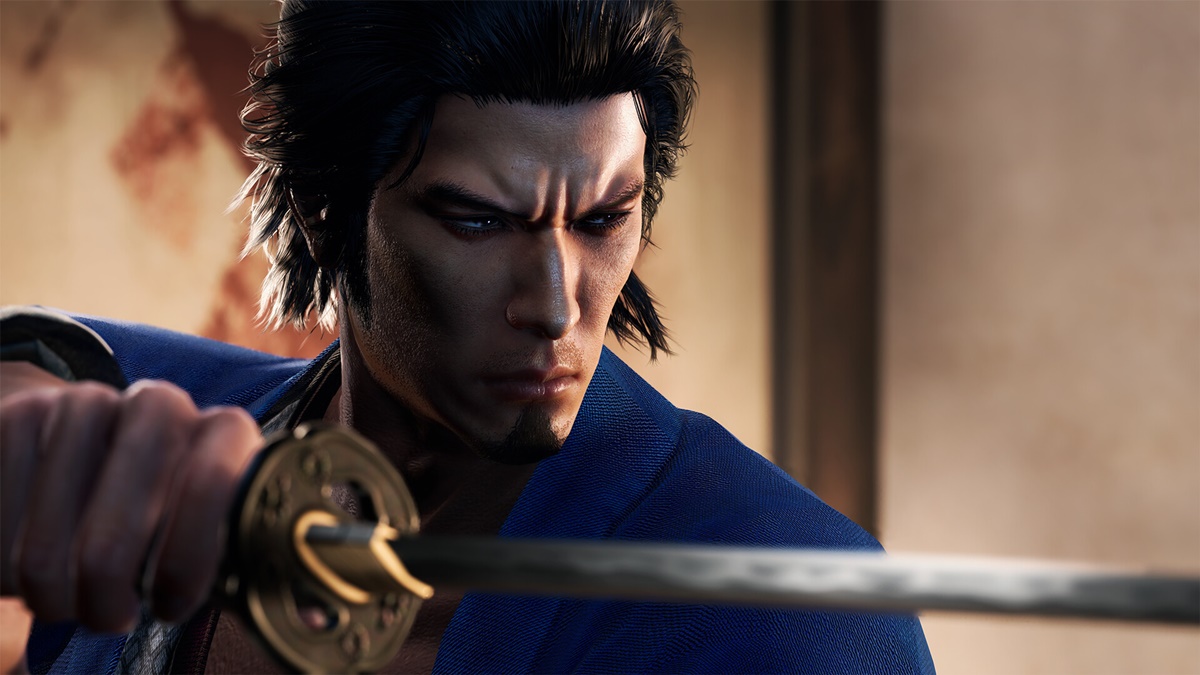
Kenny:
Even when creating a character in wrestling, you never want to give away all the answers. You always want to leave gaps. As long as the character is strong and they capture the imagination, you have the freedom to move them in different directions. Eventually, this leads to the character developing a life of their own.
It’s like this world you’ve created is alive. The characters in Yakuza/Like a Dragon have come to life and now all have personalities of their own. They won’t do something out of character, because the foundation of what makes them human is believable. And as the creator, you don’t want to betray that. The same thing can be said about me. There’s another person underneath the persona of Kenny, you know, but I live my life in a way as to not betray him.
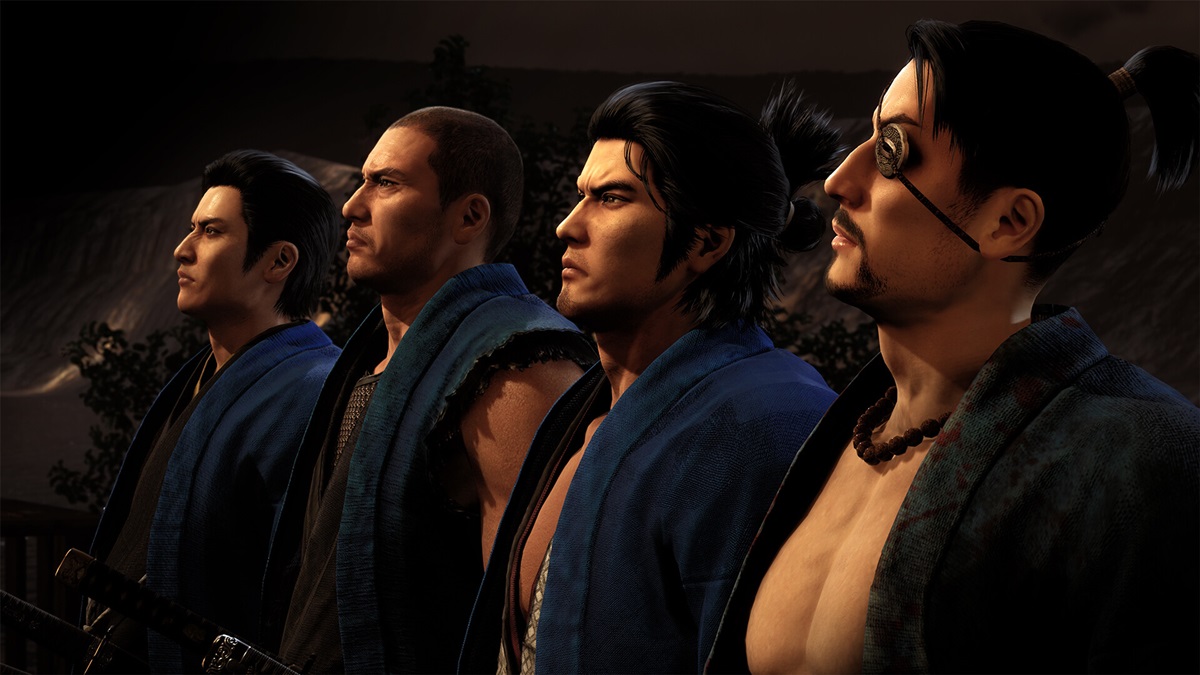
Sakamoto:
If a character is good enough, their life story is capable of creating its own narrative. I think that’s something wrestling and Yakuza have in common. I myself love wrestling. There’s a sense of excitement that comes from its unpredictability, wouldn’t you agree? I believe that’s something you can also find in games and entertainment. When a new game is announced, fans try to guess what kind of game it will be. They might say something like, “Oh, it’s probably just another game like such and such.” That’s why, when making games in the Yakuza/Like a Dragon series, we were always thinking about how to create something that would exceed those expectations.
Kenny’s take on Yakuza: Like a Dragon
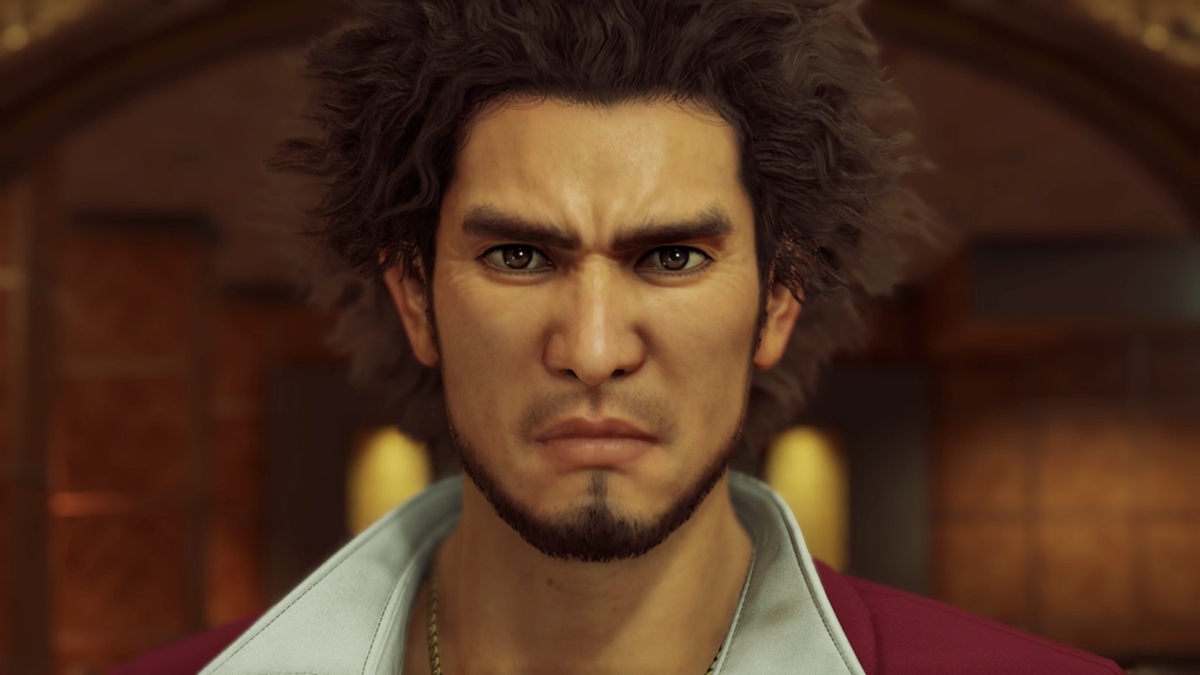
Sakamoto:
As Kenny is likely aware, we recently changed both the main protagonist and the genre with the release of Yakuza: Like a Dragon. When these changes were first announced, it generated quite a storm of criticism and backlash. Fans were saying things like, “Why would you stop making action games?” and, “Go back and remake it right now.”
Kenny:
In my opinion, this now feels like the most natural way to play the game. It proves that the popularity of the franchise didn’t come from just the fighting action or the combat system, but also from the characters and the writing. Of course, the combat itself is important as well, but I don’t think the actual combat system matters so much as long as you can still see and feel the impact of the attacks.
Sakamoto:
I should add that despite the wave of criticism, the development team still believed we would be just fine. While creating Yakuza: Like a Dragon, we had a firm grasp of what the Yakuza/Like a Dragon series was at its core, and believed that even as an RPG, players would see this new game as a proper entry in the series once they played it.
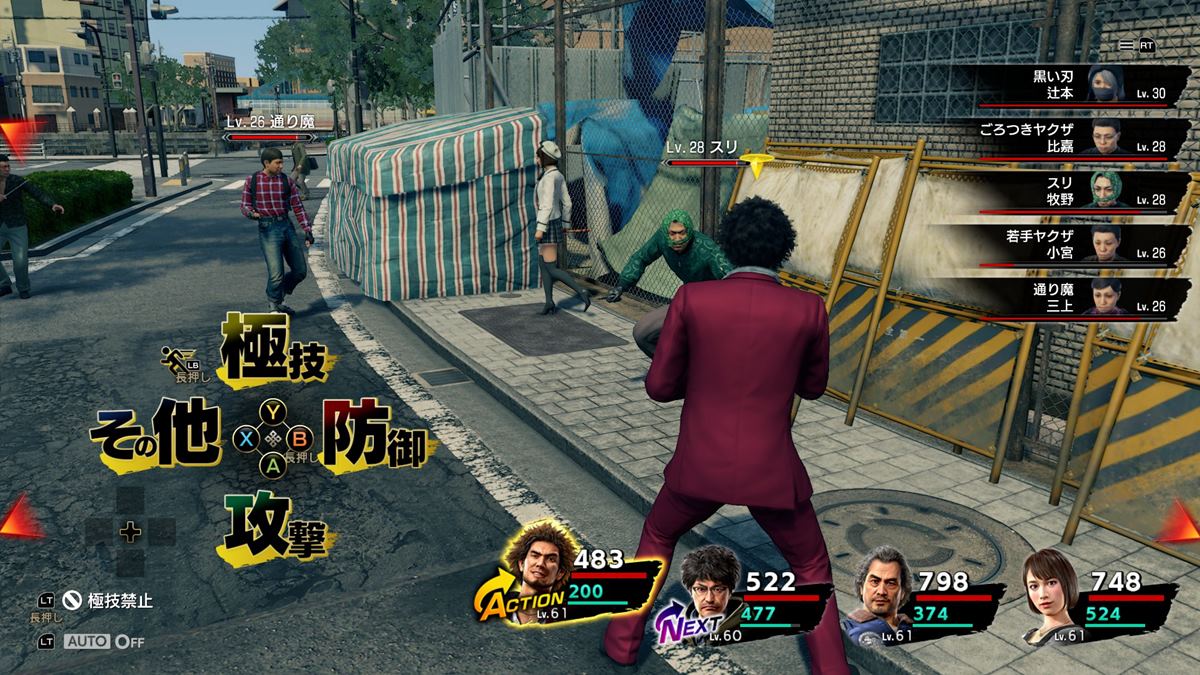
Kenny:
For me, I knew it was going to be a really good game as soon as I first saw the opening scenes where you get a little bit of backstory of the Arakawa Family and are introduced to Kasuga in Kamurocho. I didn’t even need to see how the RPG systems would work. I just knew it was going to be good because the scenes gave me a reason to care about the bad guy. Sure, he’s the bad guy, but he’s not so bad as to be completely unrelatable. On top of that, Kasuga is the kind of goofy strong guy that’s impossible to hate. You can’t help but want to see him do well. I’m a huge fan of Hajime no Ippo*, and Kasuga’s personality reminds me a lot of Mamoru Takamura. He’s strong, but also a goof. He may not be the smartest, but he means well and will always do what’s honorable.
*Hajime no Ippo is a boxing manga created by Japanese artist George Morikawa
Sakamoto:
Thank you for saying so. Still, thinking back on all the backlash we received, it’s understandable that our fans would be a bit worried. After all, we’d only been making action games up until that point.
However, while we understand that there’s an underlying essence of what makes a Yakuza/Like a Dragon game, there is no rigid definition we follow. As I’ve mentioned in other media interviews, we might even release a Yakuza/Like a Dragon puzzle game at some point. We aren’t fixated on defining the series as strictly action games, or any other genre for that matter. For instance, you could turn even a game of chess into a drama if you wanted to. So along those lines, we try to consider what the best way to let players enjoy a game’s story would be. I think that’s one of the things that makes our way of thinking somewhat unconventional.
Kenny:
Yeah, I feel like the franchise is so strong now, and the world within the games has such a solid foundation, that they could be just about anything. I think that’s why the Judgment series did so well. Doing a detective story instead of a yakuza story made sense.
Sakamoto:
Yes, I agree. The Judgment series takes place in Kamurocho and Isezaki Ijincho, which are familiar locations from the Yakuza/Like a Dragon games. It’s an example of how having a well-established world allows you to create so many different compelling stories.
A message to the fans
Sakamoto:
On a slightly different topic, I wanted to say thank you for wearing the Shinsengumi haori during AEW Revolution. It was really exciting to see.
Kenny:
Everyone was worried about getting permission to do it. We didn’t know if we should ask Sega or AEW. When I put it on, though, it really looked like it was part of my costume. It didn’t clash or look like I was trying to forcefully incorporate something from the game, but instead just looked so natural.
Sakamoto:
I think it looked great. In fact, I thought it looked so natural that I hope you’ll wear it again in the future.
Kenny:
Yakuza/Like a Dragon has so many cool designs, from clothing fashion to tattoos. It’s always top level. To be able to take something from the game and make it look like it belonged on me was a great feeling.
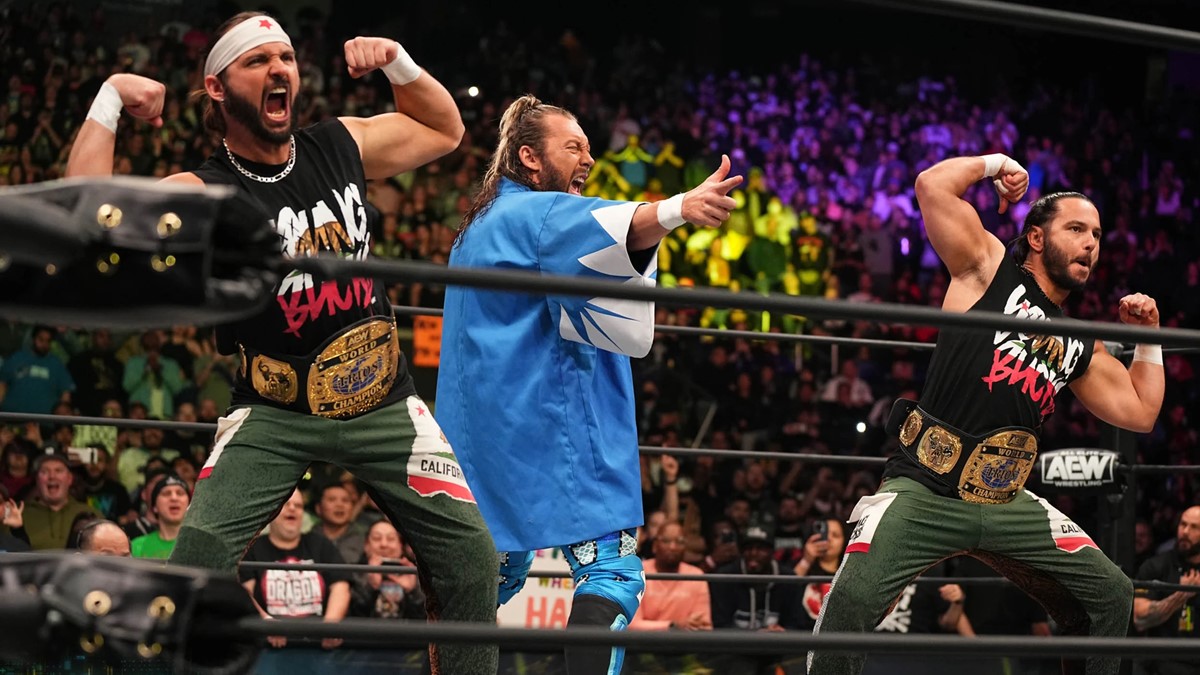
Sakamoto:
Thank you very much. I’m really happy to hear that.
Allow me to say one final time that I’m so happy to have done such a wonderful collaboration with you in Like a Dragon: Ishin! Thank you so much.
Kenny:
Your gratitude is greatly appreciated. I just love the series. I love the game’s universe. If there’s any way I can use my influence and power as a star, or the reach of my personality and position as a wrestler, to help promote your games in America so players can appreciate Japanese culture and see the hard work of everyone on your team and at Sega, all you have to do is say the word. I’d be more than happy to help in any way I can.
Sakamoto:
Thank you very much. Is there any final message you would like to give to the fans reading this?
Kenny:
In today’s world, there are so many options for consuming media. Whether it’s music, movies, games, or whatever, technology gives us the ability to reach anything and everything from wherever we like. As a wrestler, I pride myself in saying, “if you enjoy anything athletic, anything entertaining, then I can promise that you will enjoy seeing what I do.” In a similar sense, if there are any video game fans out there who are looking to feel something, and you’ve got a controller and a console, then playing Yakuza/Like a Dragon is a safe bet. There’s definitely something in it that everyone can enjoy.
Sakamoto:
Thank you for those wonderful closing words.
Like a Dragon: Ishin! is currently available for PS4, PS5, Xbox One, Xbox Series X|S, and PC (Windows/Steam). Also check out NJPW World to watch Kenny Omega defend his US Heavyweight championship, as well as many other AEW matches.
Translated by. Braden Noyes based on the original Japanese article (original article’s publication date: 2023-05-17 22:00 JST)

